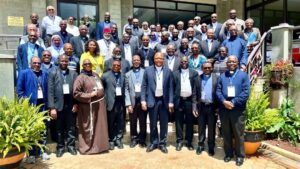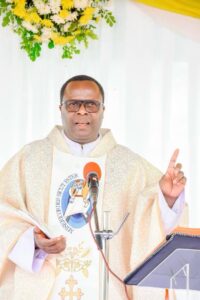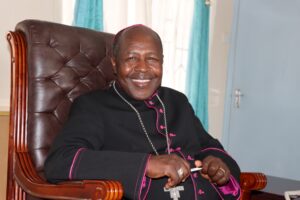KENYA: Conference on Women Theologians to Help Church Embrace Synodal Identity
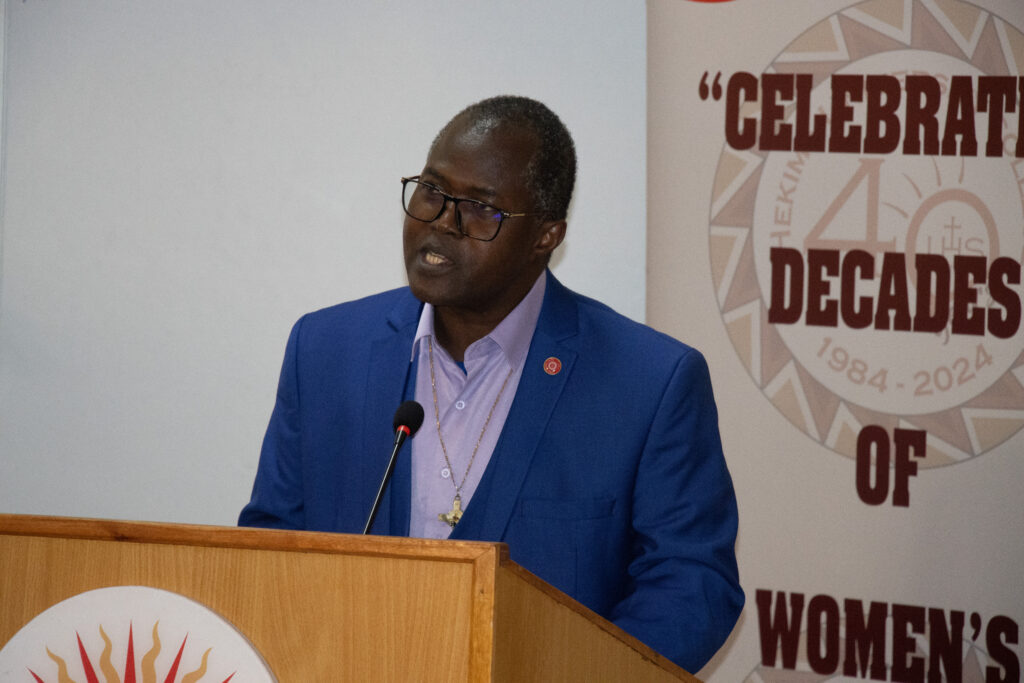
Fr. Emmanuel, SJ
Sr. Jecinter Antoinette Okoth, FSSA
The ongoing conference in Kenya for African women theologians from across the continent is meant to help the Church bridge societal gap due to social structures and embrace synodality, an official at the opening session of the conference has said.
Addressing the congregation on behalf of Fr. José Minaku Lukoli the Chairman of Hekima University College (HUC) board of trustees and president of the Jesuit Conference of Africa and Madagascar (JCAM), Fr. Emmanuel Foro noted that women have contributed greatly to shaping societal thoughts, and through this ongoing conference women’s voices will be heard, and in a way, will help the Church embrace inclusivity.
“The women’s voices can help the Church find its true face and embrace her professed synodal identity: One, Holy, Catholic, and Apostolic,” Fr. Foro a member of the Society of Jesus (Jesuits) read Fr. Minaku’s message adding that, “This way, these voices give a particular tone to the unity of the Church, rich in its diversity.”
According to Fr. Foro in the opening remarks made Thursday, March 7, women’s voices highlight the apostolicity of the Church focusing on the fact that St. Mary Magdalene was raised to the rank of an apostle in the Church becoming what he says, “an eloquent sign of the inevitable restoration of a history truncated by masculine power.”
The cleric disclosed that for years, the social structure, especially in the African society, which is shaped by a predominantly patriarchal and masculine mentality, “repeatedly marginalizes women and such a conference reminds the society of the gaps to fill in the area of equal rights.”
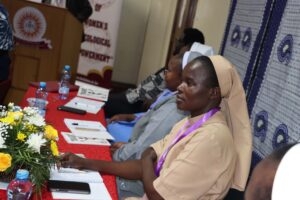
Based on this mentality, Fr. Foro applauds HUC an affiliate of the Catholic University of Eastern Africa (CUEA) for the opportunity to bridge this existing gap.
Referencing a renowned Ghanaian Methodist theologian known for her work in African women’s theologies and theological anthropology Ms. Mercy Amba Ewudziwa Oduyoye the cleric notes that the conference includes those whose “oral theology is embedded in their prayers, the songs they compose and sing, and the artefacts they create, name, and dedicate.”
This inclusivity he said, “is important for the history of African theology because its rich initial intuitions did not benefit from a systematization of thought. As such, pioneer theologians, especially women, disappeared with their original garb. Hence, this conference must value the process of systematization.”
The conference that runs from 7-10th March is themed: Celebrating decades of women’s theological empowerment.
